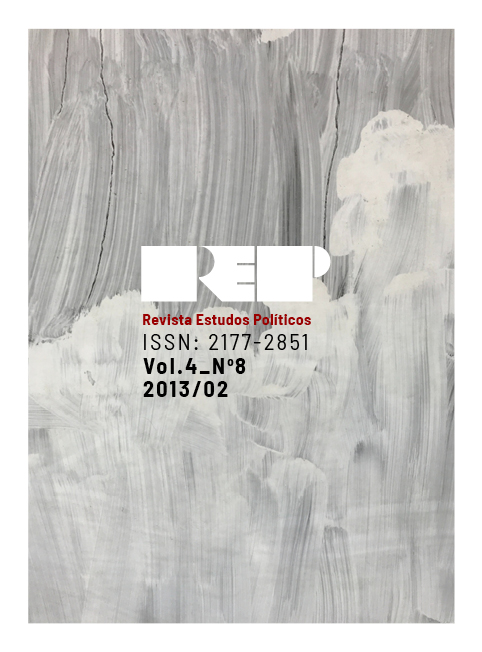The june protests and politics in contemporary Brazil: an invitation to a debate
DOI:
https://doi.org/10.22409/rep.v4i8.40316Palavras-chave:
June demonstrations, Brazilian politicsResumo
Scores of political manifestations drew millions to the streets in several Brazilian cities in June 2103. Their initial motivation was to protest against an increase in public transportation fares, but swiftly became broader and diversified. The magnitude of the protests caused astonishment. President Dilma Rousseff was quick to issue a statement declaring she had an ear turned to the voices from the streets. But what were these voices about? Journalists, intellectuals, politicians and militants entered the public debate trying to explain the phenomenon. Why were people mobilizing? What were their grievances? How would the wave of protests unfold? As ruas e a democracia [The Streets and Democracy] is a contribution to the debate. Political scientist Marco Aurélio Nogueira interprets the recent protests building upon an analysis of the conjuncture of Brazilian politics during the last decade, a period marked by the election of the Workers’ Party, the PT, to the presidency.1 A tenured Political Theory professor and the director of the Instituto de Políticas Públicas e Relações Internacionais [Institute of Public Policies and International Relations] at the São Paulo State University (UNESP), Marco Aurélio Nogueira mobilizes in his new books subjects he has been studying for years: politics, state reform, democracy, civil society, globalization and modernity. Although it focuses on recent events, the work reflects the results of a matured reflection on these subjects.Downloads
Downloads
Publicado
Edição
Secção
Licença
Para submeter um manuscrito, os autores devem realizar o cadastro na plataforma, fornecer os dados solicitados e seguir as orientações recomendadas. Para tanto, será necessário apresentar o número da identidade de pesquisador. Para obtê-lo, é necessário realizar o cadastro na plataforma Open Researcher and Contributor ID (ORCID).
Ao submeter um manuscrito, os autores declaram sua propriedade intelectual sobre o texto e se comprometem com todas as práticas legais relativas à autoria. A submissão implica, ainda, na autorização plena, irrevogável e gratuita de sua publicação na REP, a qual se responsabiliza pela menção da autoria.
A REP tem acesso aberto e não cobra pelo acesso aos artigos.
Orientando-se pelo princípio de que tornar público e disponibilizar gratuitamente o conhecimento científico contribui para a democratização mundial do conhecimento, a REP adota a política de acesso livre e imediato ao seu conteúdo.
No mesmo sentido, a REP utiliza a licença CC-BY, Creative Commons, a qual autoriza que terceiros distribuam, remixem, adaptem e criem a partir do trabalho, inclusive para fins comerciais, desde que se reconheça e torne público o crédito da criação original.
Para mais informações, contatar a editora através do e-mail revistaestudospoliticos@gmail.com


